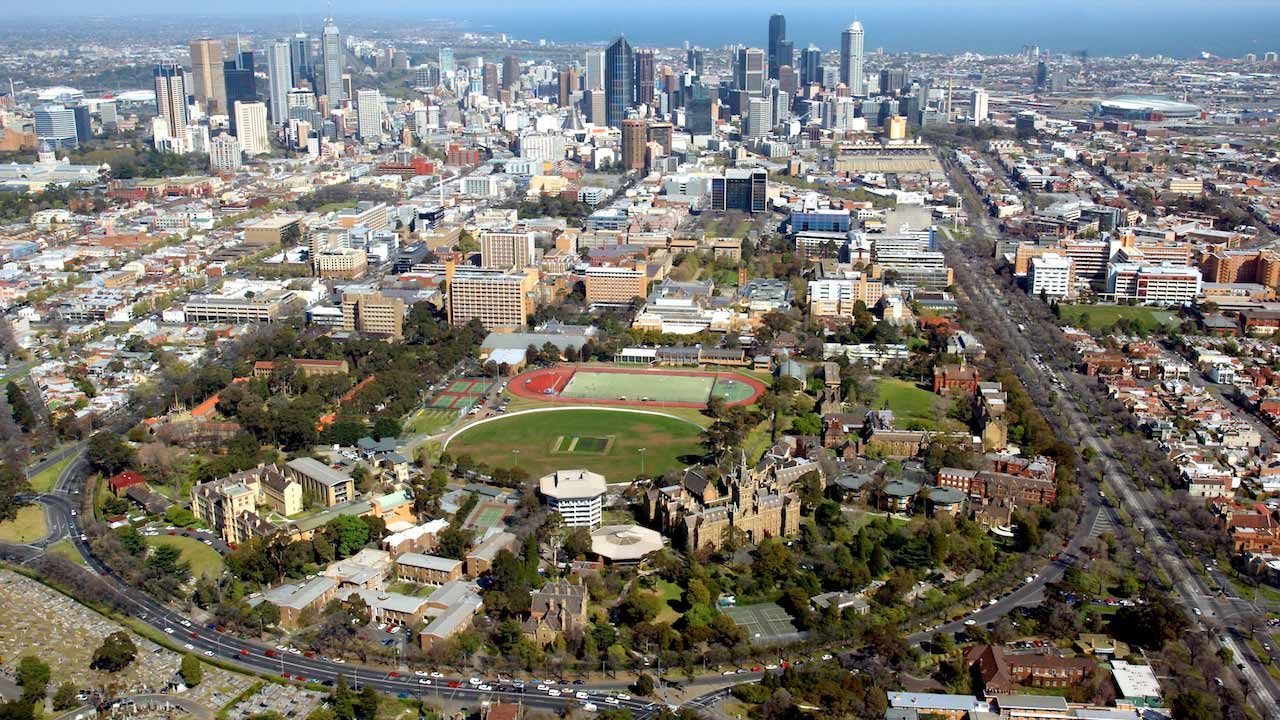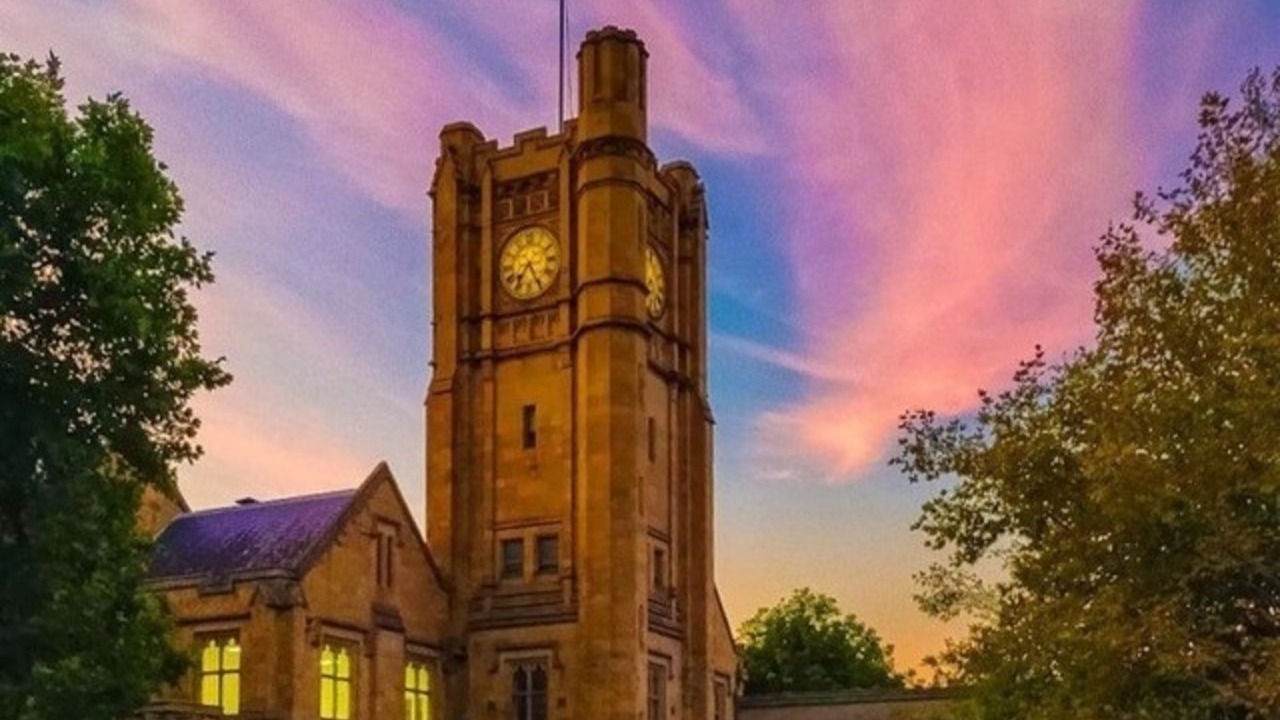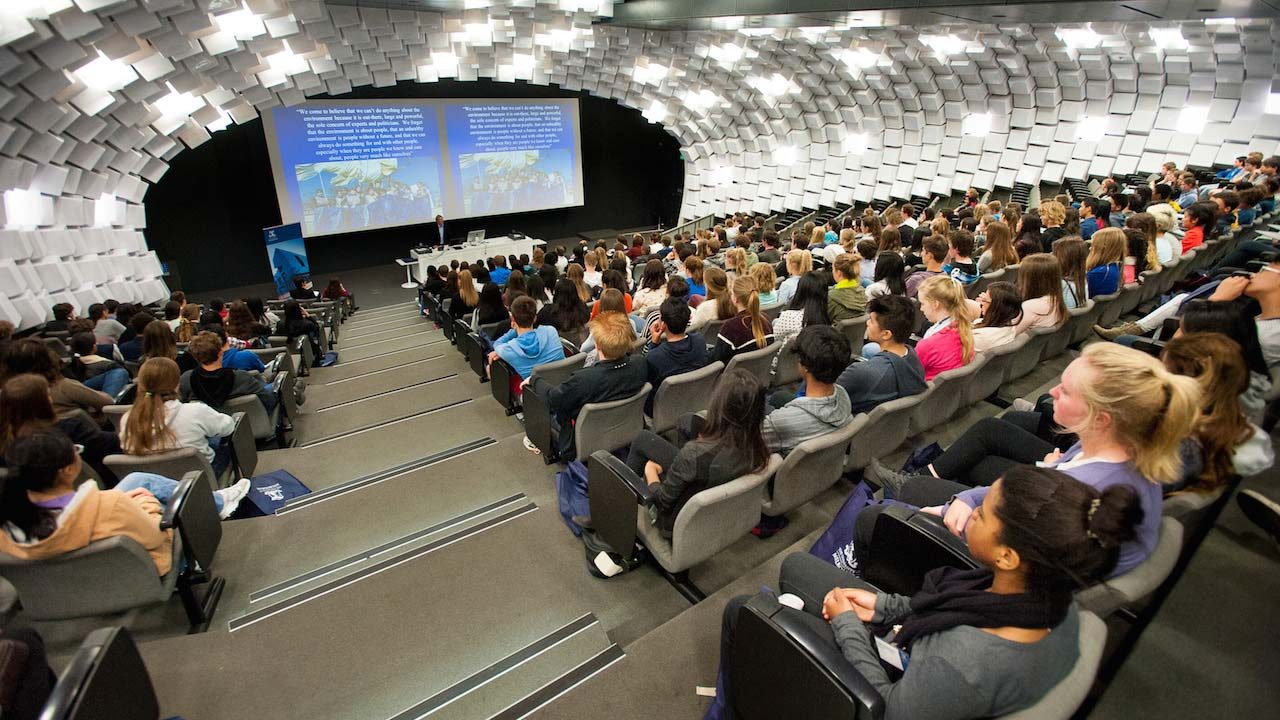University of Melbourne, Full Degree
The University of Melbourne convenes brilliant minds to address the important questions of our times. The university equips students with a future-facing education, enriched by global perspectives and embedded in research, while serving the community, ensuring that education and research is inspired by need and for the benefit of society.
Apply NowSnapshot
Full-Degree Program
Highlights
Study at one of the top three universities in the country, and one of only two Australian universities to be in the top 30 universities globally (US News & World Report 2022).
Enjoy the Melbourne lifestyle. Voted the world’s most liveable city seven times running, Melbourne will captivate you with its charming café culture and cool nightlife.
A unique, customizable curriculum at the undergraduate level and a range of professional degrees at the graduate level
Ranked # 8 in graduate employability worldwide (QS Graduate Employability 2022)
Internships, placements and work experience opportunities enable students to put theory into practice alongside some of the world’s leading organizations.
University
About University of Melbourne
Established in 1853, the University is a large, public, research-intensive, comprehensive university ranked 1st in Australia and 34th in the world (Times Higher Education World University Rankings 2023). The student body of 60,000 undergraduate and graduate students is 43% international, including several hundred Americans.
CRICOS Provider Code: 00116K
Location
The University is situated in the heart of Melbourne. The main campus at Parkville is in a residential neighborhood 15 minutes from downtown, nestled in between Melbourne’s version of Little Italy and the Melbourne Biomedical Precinct.
Satellite campuses include the Faculty of Fine Arts and Music’s Southbank campus in Melbourne’s cultural precinct and Werribee, an hour from Melbourne where students in the graduate veterinary program spend a year.
Melbourne has been voted the most livable city in the world seven times. It’s regarded as Australia’s cultural and sporting capital, the Silicon Valley of biotechnology, all with easy access to Australia’s stunning and unique nature.
View MapProgram Details
Housing
All campus accommodation options are located either on-campus or just a short walk from the Parkville main campus. The University’s central location and the city’s excellent public transport also provide convenient off-campus accommodation options.
TEAN Staff
The Education Abroad Network TEAN is an approved education agent for University of Melbourne, for students from North America. Our team work with you through the entire application process from start to finish. Have questions about the full degree program with University of Melbourne?
Ask Our TeamDegree Programs
Undergraduate Degree Programs
All degrees are three years, with 130 majors and minors in agriculture, architecture, business, design, health, humanities, fine art, music, and STEM. Melbourne’s curriculum is flexible, with many electives within a degree and the only one in Australia with ‘breadth subjects’. These classes are anything of your choosing and a quarter of your studies.
Graduate Degree Programs
400 graduate programs in coursework and research in agriculture, architecture and design, business and economics, education, engineering and IT, environment and sustainability, fine Arts and music, health, humanities and social sciences, law, science, and veterinary sciences.
| Discipline | Undergraduate | Graduate |
|
Agriculture & Food Science |
||
| Agriculture | x | x |
| Food Science | x | x |
|
Architecture & Design |
||
| Architecture | x | x |
| Construction | x | x |
| Graphic Design | x | |
| Landscape Architecture | x | x |
| Performance Design | x | |
| Property | x | x |
| Urban Planning | x | x |
| User Experience Design | x | |
|
Business and Economics |
||
| Accounting | x | x |
| Actuarial Studies | x | x |
| Econometrics | x | |
| Economics | x | x |
| Entrepreneurship | x | |
| Finance | x | x |
| Human Resources | x | |
| International Business | x | |
| Management | x | x |
| Marketing | x | x |
| Supply Chain Management | x | |
|
Education |
||
| Education policy | x | |
| Modern Languages Education | x | |
| Evaluation | x | |
| Instructional Leadership | x | |
| International Education (International Baccalaureate) | x | |
| Learning Intervention | ||
| Teaching (Early Childhood, Primary and Secondary) | x | |
| TESOL | x | |
|
Engineering and IT |
||
| Computer Science | x | x |
| Data Science | x | x |
| Energy | x | |
| Engineering – biomedical | x | x |
| Engineering – chemical | x | x |
| Engineering – civil | x | x |
| Engineering – electric & electronic | x | x |
| Engineering – environmental | x | x |
| Engineering – management | x | |
| Engineering – mechanical, aerospace & mechatronic | x | x |
| Engineering – software | x | x |
| Information technology | x | |
| Information systems | ||
|
Health |
||
| Audiology | x | |
| Biomedical science (Biochemistry, cell biology, genetics, human nutrition, immunology, infection, microbiology, neuroscience, pathology, pharmacology, physiology) | x | x |
| Biomedical statistics | x | x |
| Dentistry | x | |
| Epidemiology | x | |
| Genetic Counseling | x | |
| Genomics | x | |
| Medicine | x | |
| Nursing | x | |
| Public Health | x | |
| Physiotherapy | x | |
| Social Work | ||
| Speech Pathology | x | |
|
Humanities and Social Sciences |
||
| Anthropology | x | |
| Archaeology and Classics | x | |
| Art History | x | |
| Applied linguistics | x | x |
| Criminology | x | x |
| Cultural Management (art curatorship, cultural management, cultural preservation) |
x | |
| English | x | |
| Environmental Studies & Sustainability | x | x |
| Gender Studies | ||
| History | x | |
| Languages and Cultural Studies | x | |
| Media and Communication | x | x |
| International Studies and International Relations | x | x |
| Philosophy | x | |
| Public policy and politics | x | x |
| Publishing | x | |
| Sociology | x | |
| Translation and Interpretation | x | |
|
Fine Arts and Music |
||
| Fine Arts (Acting, Animation, Dance, Film & Television, Music Theatre, Production, Screenwriting, Theatre, Visual Art) |
x | x |
| Music (Composition, Interactive Composition, Jazz and Improvisation, Musicology and Ethnomusicology, Performance,) |
x | x |
| Music Psychology | x | |
| Music Therapy and Creative Arts Therapy | x | |
| Performance Teaching | x | |
|
Law |
||
| Juris Doctor | x | |
| Master of Laws (LLM) | x | |
| Pre-Law studies | x | |
|
Psychology |
||
| Applied Positive Psychology | x | |
| Applied Psychology | x | |
| Clinical and Neuroclinical Psychology | x | |
| Educational psychology | x | |
| Psychology – general | x | |
|
Science |
||
| Animal Science and Animal Health | x | |
| Biological sciences (Cell and developmental biology, computational biology, marine biology, microbiology, plant biology) |
x | x |
| Biotechnology | X | x |
| Chemistry | x | x |
| Ecology and Conservation | x | x |
| Environmental & Climate Science | x | x |
| Geography | x | x |
| Mathematics and statistics | x | x |
| Physics | x | x |
| Sustainability | x | x |
| Zoology | x | |
|
Veterinary |
||
| Veterinary Bioscience | x | |
| Veterinary Medicine | x | |
Eligibility
Eligibility
Undergraduate entry requirements vary by degree but are the same regardless of intended major. Some majors such as economics, health and psychology are offered in more than one degree.
- US high school diploma: GPA (unweighted junior and senior years), test score (SAT, ACT, or AP exam aggregate), academic prerequisites (AP exams or equivalents) and English language proficiency (either AP English exam, college-level English class, or test such as TOEFL, IELTS, Cambridge or Pearson’s).
- International baccalaureate: final IB score and IB subject prerequisites.
- Transfer students: admission for students with 30 or more credit hours is based on college/university GPA only and academic prerequisites. Students with less than 30 credit hours are admitted on college GPA, high school GPA, test score and academic prerequisites. Prerequisites can be through college classes, AP exams, IB subject or other equivalents.
- Admission to the Bachelor of Fine Arts and Bachelor of Music is based primarily on a folio or audition.
Graduate requirements
- Master’s by coursework: admissions for most degrees is based solely on prior academic achievement, including the cumulative undergraduate GPA and any graduate studies. Minimum GPA varies by degree, but a 3.2 on a 4.0 is competitive for most degrees.
- Personal statements, references, professional and volunteer experience are the exception rather than the norm for most degrees and are not taken into consideration if they are not specified in the entry requirements. Some graduate programs in business and health require a graduate standardized test for admission.
- Research degrees: Doctor and master philosophy programs require academic excellence (as indicated by GPA the equivalent of an 85% or above), significant research experience (equivalent to 25% of one year of full-time study), and the endorsement of a Melbourne academic prior to applying.
Events & Excursions
The University of Melbourne has 1600 industry partners, with opportunities for research, work-integrated learning, class fieldwork, and international options.
Program Dates
Submit an inquiry for questions regarding application deadlines and program dates.
| Semester Terms | Semester Begins | Semester Ends |
| Semester 1 | February | June |
| Semester 2 | Late July | November |
Fees & Inclusions
tuition fees
Average annual tuition for most undergraduate and graduate degrees is estimated at US$30,000 at the current exchange rate.
- Undergraduate tuition varies based upon which classes students enroll in.
- Annual tuition varies for graduate professional health degrees, including Physiotherapy: AU$56,064; Veterinary: AU$77,344; Medicine: AU$96,160
- All undergraduate and postgraduate degrees can use US federal student loans, with the exception of Medicine and Nursing.
health insurance fees
All international students (and their dependents) require Overseas Student Health Cover (OSHC) for the duration of their student and student dependent visas.
- OSHC is about $800 – $1800 per student for single coverage health insurance.
What’s Included and TEAN Services
- Academic guidance and counselling
- Application submission assistance, ongoing email enquiry support from start to finish throughout your application process
- Review of suitable degree programs
- Certification of transcripts
- Course advice
- Enrolment advice
- Support through the acceptance and commencement period
- Review of transcripts and documents
- Liaise between you and university
- Advice on local area for housing etc.
What’s Not Included
- Tuition fees
- International airfare ($1,800)
- Domestic airfare in US ($500)
- Student visa ($620)
- Books ($365)
- Meals during the semester ($2,500)
- Airport transfer at the end of the semester ($50)
- Travel insurance ($350)
- Travel and personal expenses ($1,500 – 2,500+)
*Costs are estimated based on previous student experience and budget. Actual amounts will vary depending on student.
The Study Australia government website Cost of Living Calculator is a helpful resource to estimate your costs.
Scholarships
Scholarships
Applicants are automatically considered for any relevant undergraduate and graduate academic merit scholarships. The average academic scholarship is a one-time tuition remission of AU$5,000 to AU$10,000.
The University does not offer scholarships bases on financial need.
Residential colleges offer scholarships for room and board and require a separate application to the residential colleges.
External Funding
The University of Melbourne participates in the US federal student loan program, which can be used for all undergraduate and graduate degrees (with the exception of medicine and nursing).
The University no longer participates in the US Veterans’ GI Bill benefits program.
The American Australian Association, the Fulbright Commission and Rotary International provide graduate scholarships in select disciplines that can be used at the University of Melbourne.






